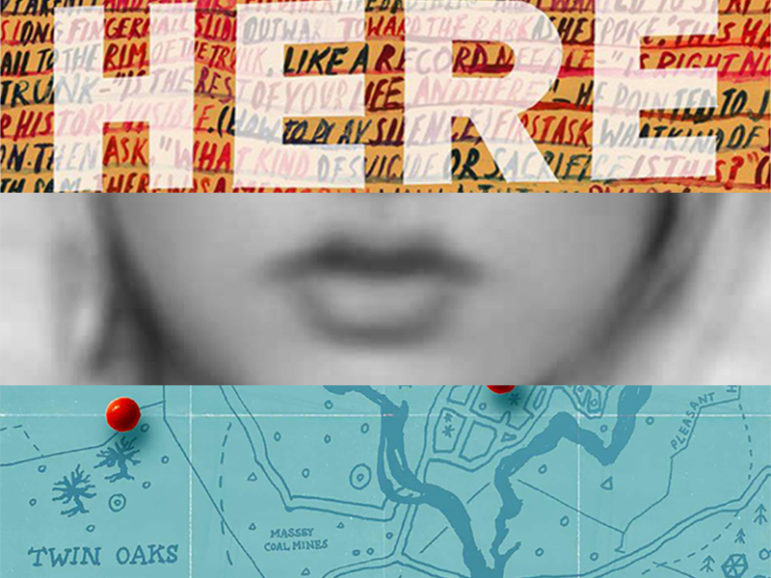(RNS) Winter isn’t “coming,” it’s already here. With it comes the hope — if not the time — to curl up under the covers or by the fire and read a good book. Here are seven titles you won’t find on the religion shelf at the bookstore or library, but that nonetheless use religion and spirituality themes to propel the story.
Fiction
“Judas” by Amos Oz (Houghton Mifflin Harcourt)
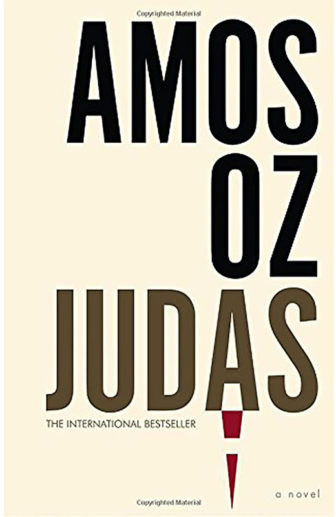
“Judas” by Amos Oz. Photo courtesy of Houghton Mifflin Harcourt
This novel by the Israeli writer is not a work of historical fiction — it is set in 1960 Jerusalem — and isn’t really about Judas. Instead, Oz rethinks and reframes the Judas-Jesus story throughout the book, raising more questions than he can answer: What was Judas’ motivation? What did he feel after the crucifixion? Why is he alone, among the disciples, remembered as a Jew? Under all of this is an exploration of the nature of betrayal and love.
Faith factor: Oz, who is Jewish, told The New York Times he has always been fascinated by the New Testament and “infuriated” at its treatment of Judas for its “inconsistencies.” The book is his attempt to pose an alternate motivation and ending for the most infamous traitor in history. The book contains a chapter described as “harrowing” by reviewers in which Oz reimagined the crucifixion from Judas’ point of view.
Excerpt: From “Judas.”
“Here I Am” by Jonathan Safran Foer (Farrar, Straus and Giroux)
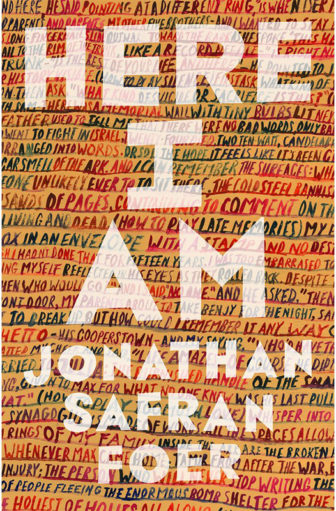
“Here I Am” by Jonathan Safran Foer. Photo courtesy of Penguin Books
This novel spans one month in the life of four generations of a Washington, D.C., Jewish family as they face issues both at home and abroad — an extramarital affair, a bar mitzvah, an earthquake in Israel.
Faith factor: The title is what Abraham said to God when asked to sacrifice Isaac. Writing in The New York Times Book Review, Daniel Menaker said, “either explicitly or by implication almost every aspect of the novel passes through the prism of Judaism or at least Jewish culture and assumes that the faith is paradigmatic of our relationship to God and the universe.”
Excerpt: “Get Back to Happiness”
“Conclave” by Robert Harris (Knopf)
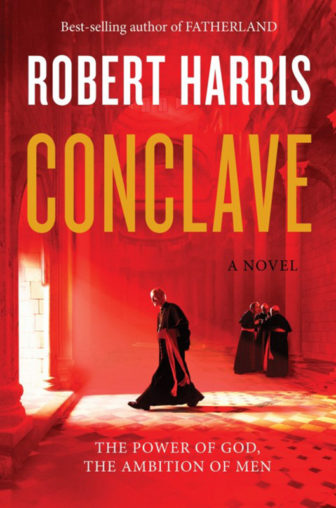
“Conclave” by Robert Harris. Photo courtesy of Knopf Doubleday Publishing
After all that seriousness about Judas and Jewish identity, here’s a potboiler of a thriller set against the cutthroat (maybe even literally!) selection of a new pope. Harris, who has tuned his writerly attention on ancient Rome with his Cicero trilogy, sums it all up in the unofficial subtitle: “The power of God, the ambition of men.”
Faith factor: Vatican, pope, Catholicism. And an ending one reviewer called “so provocatively scandalous this could become a Catholic version of ‘The Satanic Verses.'”
Excerpt: “My body is clay, my good fame a vapor, my end is ashes.”
READ: Religion reading list: Back from the beach edition
Nonfiction
“God’s Armies: Crusade and Jihad: Origins, History, Aftermath” by Malcolm Lambert (Pegasus Books)
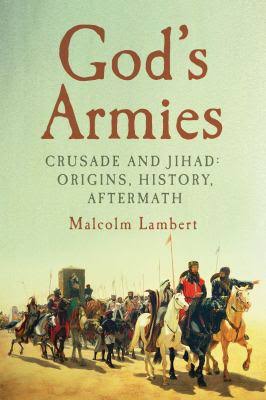
“God’s Armies” by Malcolm Lambert. Photo courtesy of Pegasus Books
Lambert, a professor of theology and medieval history, makes the leap from academic to popular history with this book that argues “crusade and jihad were twins and the one reacted on the other.” Critics have lauded the book for its approachable style and Kirkus Review said it is “an all-encompassing introduction to the Christian-Islamic struggle for the armchair history buff.
Faith factor: The book shows how the history of jihad and that of the Crusades stem from similar historical, economic and political factors. One reviewer recommended it as a means of advancing interfaith understanding.
Excerpt: “Origins of Islam”
“Muslim Girl: A Coming of Age” by Amani Al-Khatahtbeh (Simon and Schuster)
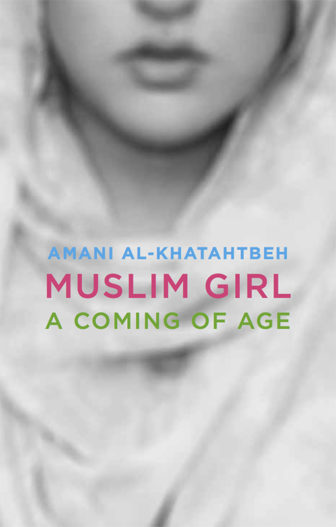
“Muslim Girl” by Amani Al-Khatahtbeh. Photo courtesy of Simon & Schuster
This memoir by the founder of the website MuslimGirl.com is an examination of the generation of Muslim American children who grew up in the shadow of the 9/11 attacks. Al-Khatahtbeh was a New Jersey fourth-grader when the World Trade Center towers fell. Watching on the television at home, her father turned prophet when he said, “This is a horrible thing that happened. … And they’re going to blame us. And it’s going to get much worse.” Writing in The New York Times, Rafia Zakaria described the book as “an account that should both enlighten and shame Americans who read it.”
Faith factor: Al-Khatahtbeh charts how she and other Muslims maintain their dignity and their place as Americans even as she calls out the limits of trying to define an entire religion or people. “One Muslim woman’s story is taken to represent Muslim women like a monolith, like an absolute truth that exists for all of us,” she writes. ” … The truth is that Muslim women come from literally every walk of life, and being fully aware of our own Western privilege, we cannot possibly attempt to speak on their behalf.”
Excerpt: On wearing hijab and being a spokesperson.
READ: Author Emma Donoghue finds ‘The Wonder’ in fasting girls
“Utopia Drive: A Road Trip Through America’s Most Radical Idea” by Erik Reece (Farrar, Straus and Giroux)
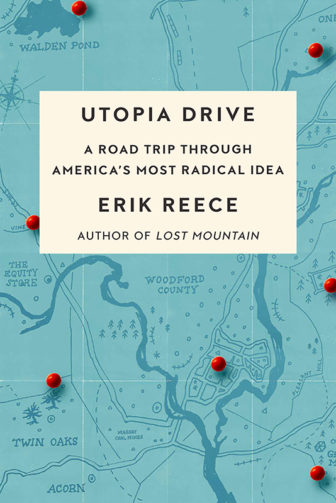
“Utopia Drive” by Erik Reece. Photo courtesy of Farrar, Straus and Giroux
Reece, an environmental journalist, tours the sites of American utopias — Pleasant Hill, New Harmony, Modern Times and more — examining their histories and eventual downfalls. Publishers Weekly called the book “an engaging exploration — and example — of the fruitful tunnel-visions of dreamers turned doers” (and described Reece’s idea of utopia as a solar-powered organic farm).
Faith factor: Many of these utopias were founded around American-born religious, spiritual or philosophical sects, such as the Shakers, the Transcendentalists and the Oneidans. Reece is well-steeped in this history, as he chronicled in his 2009 memoir, “An American Gospel: On Family, History and the Kingdom of God.”
Excerpt: From the introduction.
“The People and the Books: 18 Classics of Jewish Literature” by Adam Kirsch (W.W. Norton)
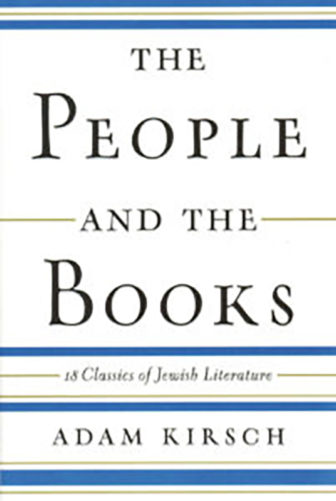
“The People and the Books” by Adam Kirsch. Photo courtesy of W.W. Norton & Co.
Adam Kirsh, a literary critic, looks at the history of the Jewish people (and, by extension, all peoples) through Jewish literature from the Bible to Sholom Aleichem. That means Kirsch treats the Book of Exodus as seriously as he does the short story “Tevye the Dairyman,” the basis for “Fiddler on the Roof.” Kirkus Reviews described it as “a fascinating, impeccably written, personal tour of the great books of Judaism.”
Faith factor: Besides the obvious link to Judaism, Kirsh organizes his survey of the literature into four categories: God, the Torah, the Land of Israel and the Jewish people. Hard to get more faithy than that.
Excerpt: Meet Gluckel of Hameln, Jewish storyteller.
